As a passionate veterinarian, I’ve had the pleasure of caring for many breeds of dogs, each with their unique traits and health concerns. One breed that holds a special place in my heart is the Cavalier King Charles Spaniel. These little charmers, with their expressive eyes, are known for their affectionate nature and loyalty. But it’s those beautiful eyes that can sometimes be the source of health issues.
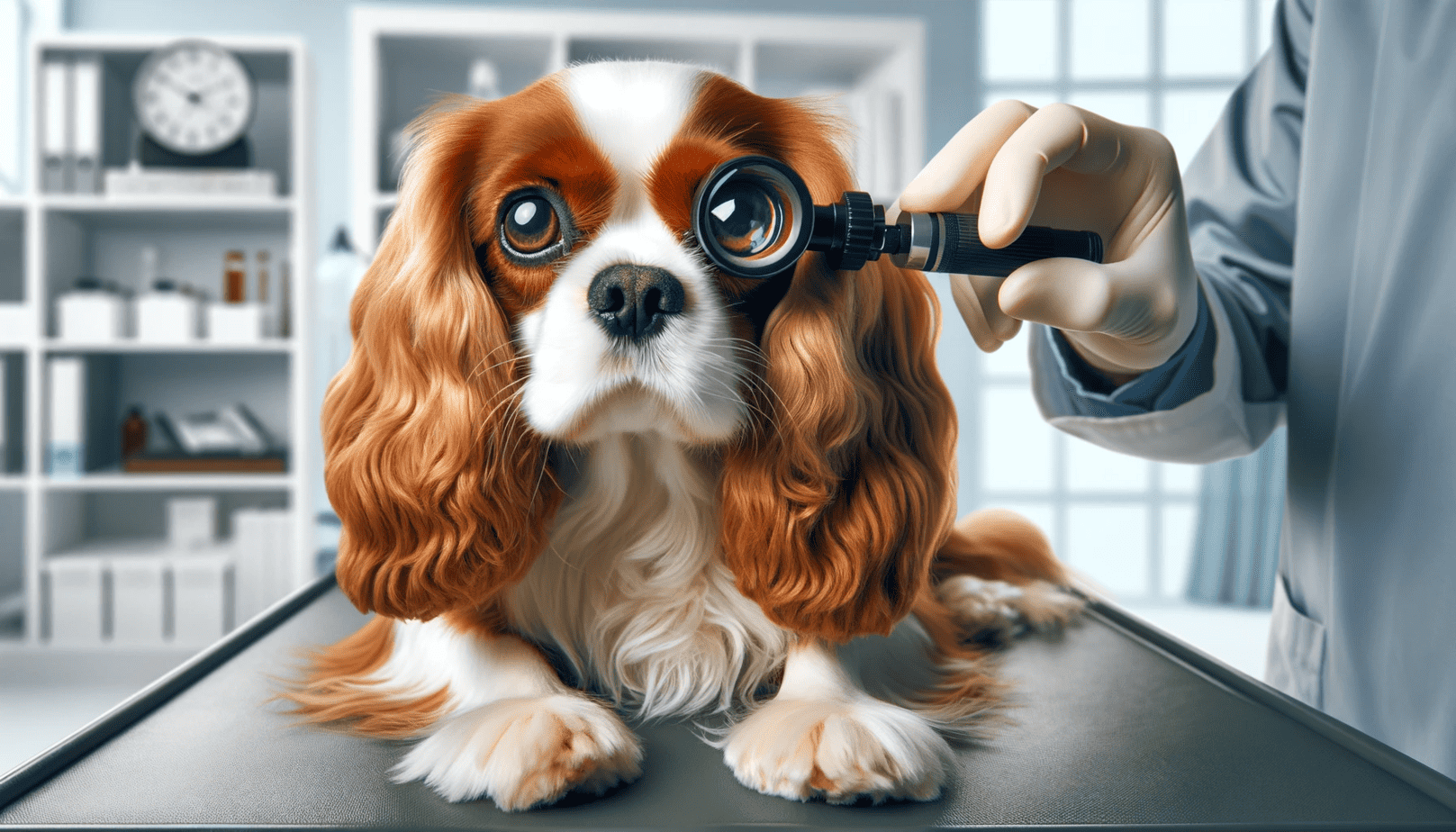
Cavalier King Charles Spaniel Eye Health is a topic that every owner of this breed should be well-versed in. While these dogs are generally healthy, they are predisposed to certain eye conditions that can affect their quality of life. But don’t worry, as a holistic veterinarian, I am here to guide you through the common eye issues that this breed may face and the solutions to manage them effectively.
From understanding the specific eye structure of your Cavalier King Charles Spaniel to the importance of a holistic diet and environmental hygiene, we’ll cover it all. We will also discuss the significance of routine eye care and maintenance, ensuring your furry friend stays healthy and happy. Remember, prevention is always better than cure.
So, let’s embark on this journey together, shall we? After all, the eyes are the windows to the soul, and in the case of our Cavalier King Charles Spaniels, they are windows to their health as well.
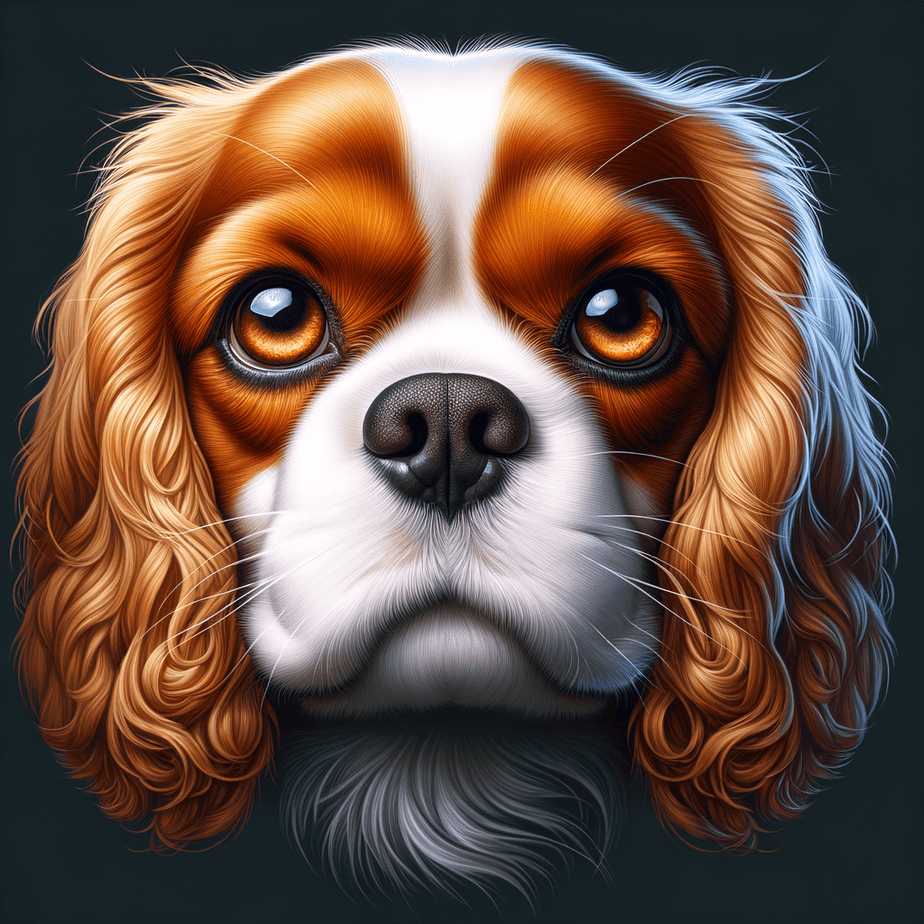
Understanding Cavalier King Charles Spaniel Specific Eye Structure
As a passionate and caring owner of a Cavalier King Charles Spaniel, you want to ensure your beloved pet enjoys the best health possible. One area that requires special attention is their eyes. The eye structure of a Cavalier King Charles Spaniel is unique and understanding it can help in identifying potential issues early on.
The Cavalier King Charles Spaniel breed has large, round eyes that are set well apart. These eyes are one of the breed’s most charming features, but their size and prominence make them more susceptible to certain eye conditions.
Their eyes are dark brown and the rims of their eyelids are black. This pigmentation is important in protecting their eyes from the sun and reducing the risk of sunburn. However, this doesn’t mean that their eyes are immune to problems. In fact, the opposite is true.
The large surface area of their exposed cornea (the clear outer layer of the eye) means that they are at a higher risk of injuries and infections. Their eyes are also prone to dryness because of their size and the fact that they protrude slightly. This can lead to conditions like dry eye or keratoconjunctivitis sicca (KCS).
Their tear ducts, which are responsible for producing tears to keep the eyes moist, are relatively small. This can sometimes lead to insufficient tear production, further exacerbating dry eye conditions. Also, the positioning of their eyelashes can sometimes cause irritation and scratching of the cornea, leading to corneal ulcers.
Another unique aspect of Cavalier King Charles Spaniel eye structure is their third eyelid, also known as the nictitating membrane. This additional eyelid helps to protect the eye and keep it moist, but it can also be prone to certain conditions like cherry eye.
Understanding your Cavalier King Charles Spaniel’s eye structure is the first step in ensuring their eye health. It allows you to be aware of potential problems and seek veterinary solutions early on. Remember, early detection and treatment of eye conditions can significantly improve the prognosis and ensure your Cavalier King Charles Spaniel enjoys a life full of clear, healthy vision.
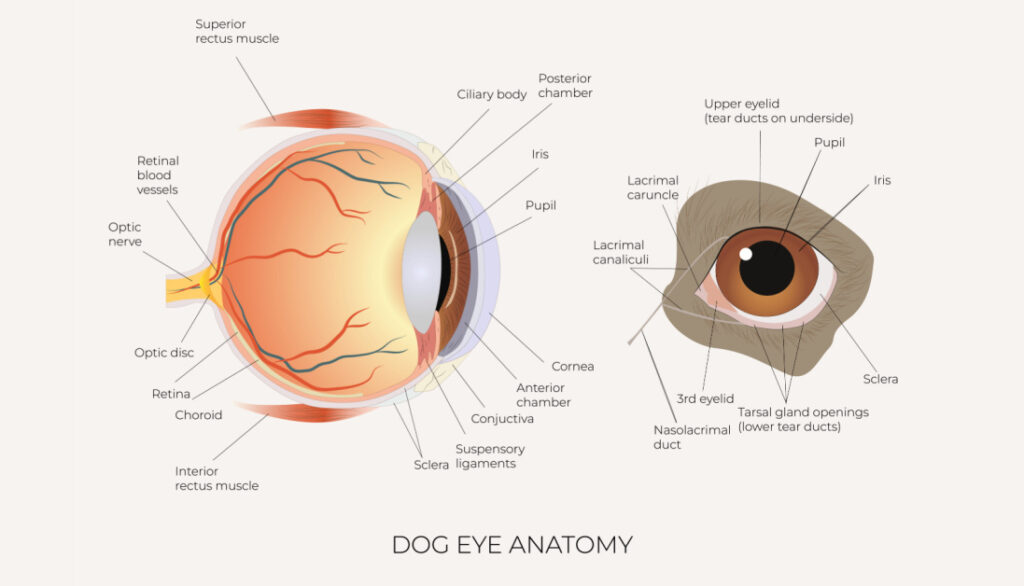
Common Eye Issues In Cavalier King Charles Spaniel
As a veterinarian, I often encounter a variety of eye health issues in Cavalier King Charles Spaniels. This breed is particularly susceptible to certain eye conditions due to their unique eye structure. Let’s take a closer look at some of the most common problems and their possible solutions.
Keratoconjunctivitis Sicca (Dry Eye)
Also known as ‘Dry Eye’, this condition is characterized by inadequate tear production, leading to dry, irritated eyes. Symptoms include redness, discharge, and frequent blinking. Treatment usually involves lifetime medication to stimulate tear production or lubricate the eye.
Hereditary Cataracts
Many Cavalier King Charles Spaniels are genetically predisposed to developing cataracts, which can lead to cloudy vision and eventually blindness if left untreated. Regular veterinary check-ups are crucial for early detection and treatment, which may include surgery to remove the cataract.
Progressive Retinal Atrophy (PRA)
This genetic disease causes the gradual degeneration of the retina, leading to night blindness and eventually total loss of vision. There is currently no cure for PRA, but early detection can help manage the condition and slow its progression.
Entropion
This is a condition where the eyelid rolls inward, causing the eyelashes to rub against the eye surface, leading to irritation, ulcers, or even vision loss. Surgical correction is often required to prevent further damage.
Distichiasis
Distichiasis is a condition where an extra row of eyelashes grows on the inner edge of the eyelid, causing irritation and discomfort. Treatment usually involves surgical removal of the extra eyelashes.
Remember, Cavalier King Charles Spaniel Eye Health – Conditions & Solutions From Vet are often intertwined. Early detection and regular check-ups can significantly improve the prognosis for many of these conditions. As a dog parent, it’s essential to be aware of these potential issues and seek veterinary care at the first sign of trouble.
Keep in mind that every dog is unique, and the ‘one-size-fits-all’ approach doesn’t apply to eye care. It’s crucial to work closely with your vet to develop a tailored approach to your Spaniel’s eye health, ensuring they remain happy, healthy, and active.
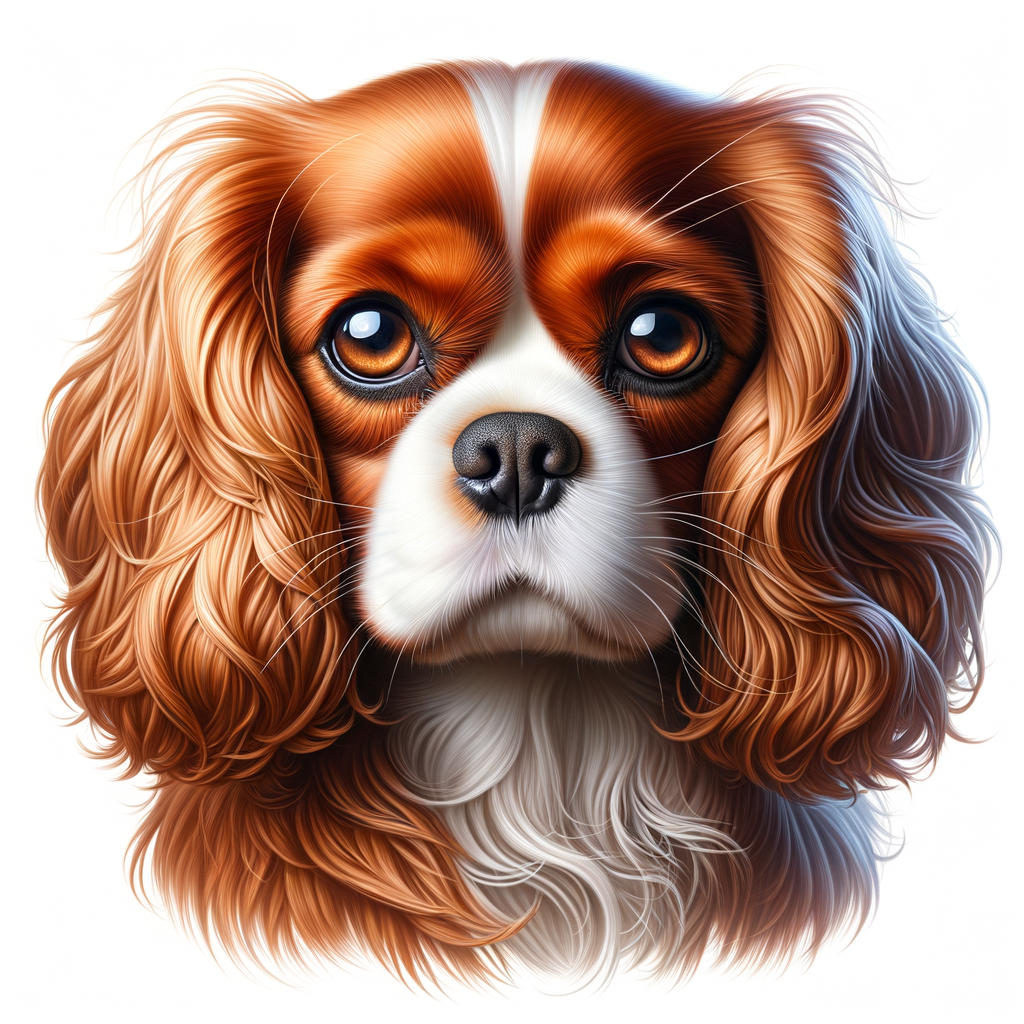
Nourishing Your Dog’s Vision: Essential Nutrients for Eye Health
Ensuring your Cavalier King Charles Spaniel gets the right nutrients for optimal eye health is essential for maintaining clear vision and preventing age-related issues. Natural, nutrient-rich foods and supplements can play a key role in supporting their eyesight. From vitamin A-packed freeze-dried liver treats to antioxidant-rich blueberries and targeted supplements like Eyeplex by Standard Process, there are several ways to nourish your dog’s eyes. In this section, we’ll explore how these powerful ingredients contribute to long-term vision health and overall well-being.
Eyeplex by Standard Process
Eyeplex by Standard Process is a specialized supplement designed to support your Cavalier King Charles Spaniel’s eye health with a blend of essential nutrients. Formulated with key vitamins, minerals, and antioxidants, Eyeplex helps protect against oxidative stress, supports retinal function, and promotes overall vision health. Ingredients like vitamin A, vitamin C, and zinc contribute to maintaining strong eyesight, while whole food ingredients provide additional phytonutrients for cellular protection. Adding Eyeplex to your Cavalier King Charles Spaniel’s diet can be especially beneficial for aging dogs or breeds prone to eye conditions, offering targeted nutritional support to keep their vision sharp and healthy for years to come.
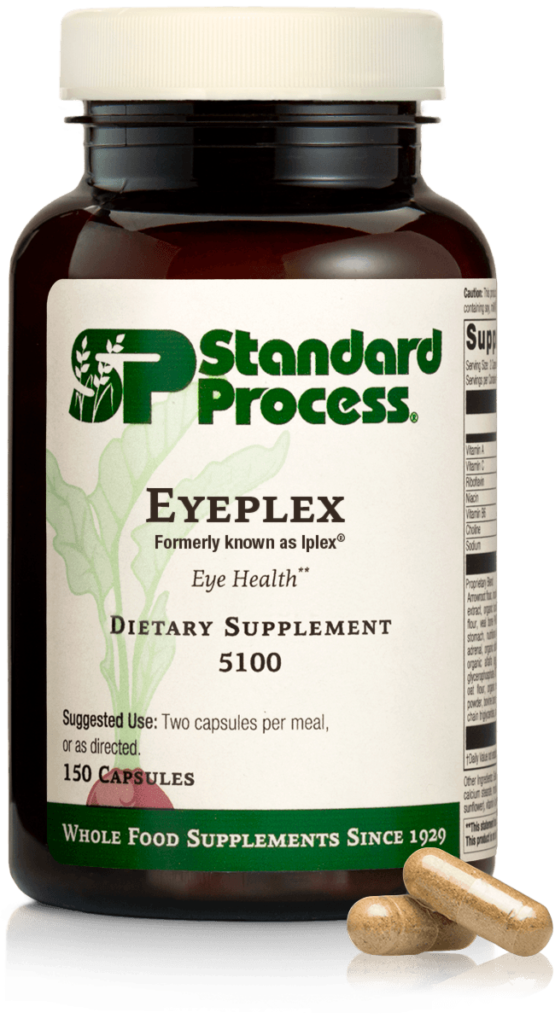
Freeze-Dried Blueberries
Freeze-dried blueberries are a powerhouse of antioxidants that can help protect your Cavalier King Charles Spaniel’s eyes from oxidative stress and age-related damage. Rich in vitamins C and E, as well as anthocyanins, these tiny but mighty berries help combat free radicals that can contribute to eye diseases like cataracts and macular degeneration. Incorporating freeze-dried blueberries into your dog’s diet provides a natural and delicious way to support retinal health, reduce inflammation, and promote overall vision longevity. Plus, they’re a low-calorie, dog-friendly treat that makes a great addition to a balanced diet for long-term eye health.
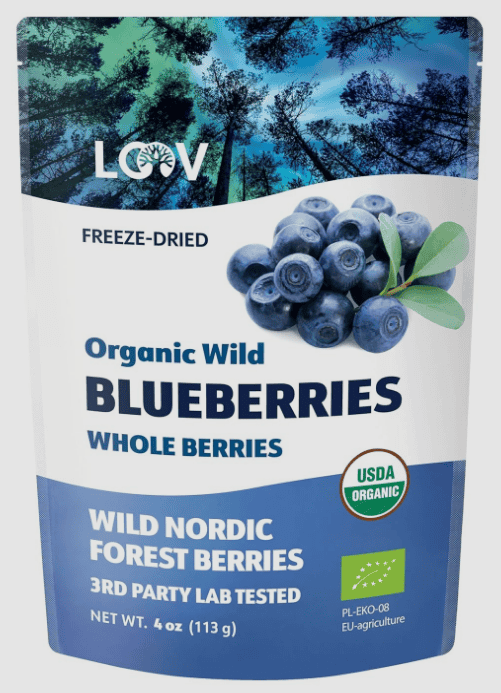
Freeze-Dried Liver
Freeze-dried liver treats are an excellent natural source of vitamin A, an essential nutrient for your Cavalier King Charles Spaniel’s eye health. Vitamin A plays a crucial role in maintaining good vision, especially in low-light conditions, while also supporting overall immune function and skin health. Since liver is rich in bioavailable vitamin A, incorporating freeze-dried liver treats into your dog’s diet provides a convenient and nutritious way to promote optimal eye function. Just be sure to feed them in moderation, as excessive vitamin A can lead to toxicity. Adding these nutrient-packed treats to your pup’s routine is a simple, tasty way to support their long-term vision and well-being!
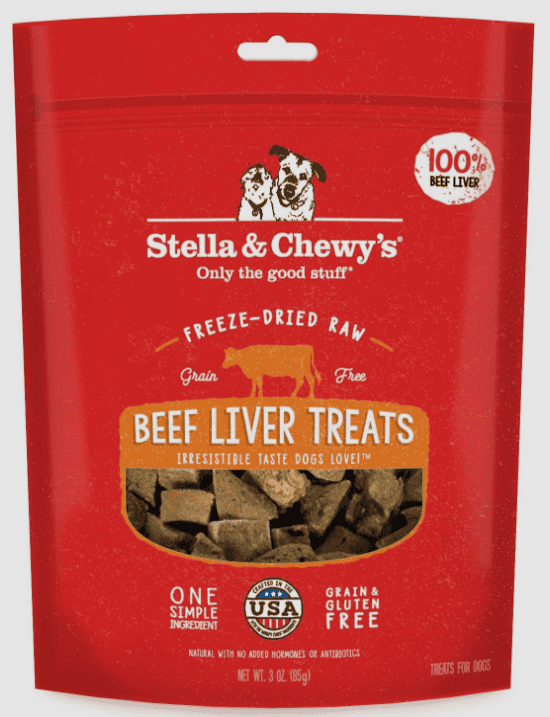
By prioritizing your Cavalier King Charles Spaniel’s eye health through a balanced diet and nutritional supplements, you can help prevent many common eye issues. These simple steps can go a long way in ensuring your pup’s eyes stay healthy and clear for years to come.
Environmental Hygiene To Reduce Eye Problems
As a proud parent of a Cavalier King Charles Spaniel, you are probably aware of the common eye conditions that can affect this breed. But did you know that the environment your furry friend lives in can greatly impact their eye health? Yes, it’s true! Let’s dive into some environmental factors that can influence your Cavalier King Charles Spaniel’s eye health and what you can do to mitigate them.
Indoor Air Quality
Indoor air quality plays a significant role in your Cavalier King Charles Spaniel’s eye health. Dust, dander, and other airborne particles can irritate your pup’s eyes, leading to conditions like conjunctivitis and dry eye. Here are some ways to improve indoor air quality:
- Regular vacuuming: This helps keep dust and dander levels down. Make sure to vacuum furniture and curtains as well, as these can harbor allergens.
- Air purifiers: These can help filter out irritants from the air. Opt for one with a HEPA filter for best results.
- Regular grooming: Keeping your Cavalier King Charles Spaniel well-groomed can reduce the amount of dander in the air.
Sprays, Diffusers, Candles, Incense
While you might love the smell of your favorite air freshener or candle, these can be irritating to your Cavalier King Charles Spaniel’s eyes. The chemicals and artificial fragrances in these products can cause eye irritation and even lead to long-term damage. Here are some safer alternatives:
- Natural air fresheners: Opt for air fresheners that use essential oils instead of artificial fragrances. Just make sure the essential oils used are safe for dogs.
- Soy or beeswax candles: These burn cleaner than traditional paraffin candles and produce less soot.
- Diffusers: If you love diffusing essential oils, make sure to use only dog-safe oils and keep the diffuser in a well-ventilated area.
Remember, your Cavalier King Charles Spaniel’s eye health is not just about regular vet check-ups and a good diet. The environment they live in plays a big role too. By keeping your home clean, reducing airborne irritants, and opting for pet-safe products, you can help keep your pup’s eyes healthy and bright!
Let’s now dive into the routine eye care and maintenance for your Cavalier King Charles Spaniel. Ensuring your pet’s eyes are healthy is a crucial part of their overall wellbeing, and as a responsible dog parent, there are a few things you need to incorporate into your pet care routine.
Daily & Weekly Care & Maintenance
Firstly, make it a habit to check your dog’s eyes daily. Cavalier King Charles Spaniel eye health can be compromised by debris, dirt, or discharge. Therefore, gentle daily cleaning with a soft, damp cloth can help keep their eyes clear and prevent infections.
Also, observe your dog’s behavior. If they’re excessively pawing at their eyes, squinting, or seem to be in discomfort, it may be a sign of an underlying eye condition. In such cases, it’s best to seek immediate veterinary solutions for Cavalier King Charles Spaniel eye conditions.
Monitoring Hair Length, Nail Length, and Bath Frequency
Another aspect of routine eye care for your Cavalier King Charles Spaniel involves monitoring their hair and nail length. Long hair can irritate your dog’s eyes, leading to eye problems in Cavalier King Charles Spaniels. Therefore, regular grooming and trimming around the eyes are crucial to prevent discomfort or injury.
Similarly, long nails can lead to accidental eye scratches, especially if your dog tends to paw at their face. Regular nail trimming can prevent such accidents and protect your dog’s eyes.
Bathing your Cavalier King Charles Spaniel is another crucial aspect of their eye care. However, it’s essential to ensure that bath products like shampoo or soap do not get into your dog’s eyes as they can cause irritation. Always use tear-free products and take care to avoid the eye area during bath time.
Remember, prevention is always better than cure, especially when it comes to your beloved pet’s health. Regular eye care and maintenance can go a long way in protecting your Cavalier King Charles Spaniel’s eye health and ensuring they lead a happy, healthy life. However, if you notice any abnormalities or changes in your dog’s eyes, do not hesitate to consult a vet. They can provide the right treatment and advice to manage any potential eye conditions effectively.
Frequently Asked Questions
1. What are common eye conditions in Cavalier King Charles Spaniels?
Cavalier King Charles Spaniels are prone to several eye conditions, including:
- Progressive Retinal Atrophy (PRA)
- Cataracts
- Cherry Eye
- Corneal Ulcers
- Glaucoma
2. How can I identify if my Cavalier King Charles Spaniel has an eye problem?
Watch out for the following signs that may indicate an eye problem:
- Excessive tearing or discharge
- Redness or inflammation
- Cloudiness or opacity in the eyes
- Squinting or rubbing of the eyes
- Bumping into objects or difficulty navigating
3. Can eye conditions in Cavalier King Charles Spaniels be treated?
Yes, many eye conditions in Cavalier King Charles Spaniels can be treated. However, the treatment options depend on the specific condition and its severity. It is important to consult a veterinarian for a proper diagnosis and appropriate treatment plan.
4. How can I prevent eye problems in my Cavalier King Charles Spaniel?
To help prevent eye problems in your Cavalier King Charles Spaniel, you can:
- Regularly clean the area around the eyes to prevent debris buildup
- Keep the eyes protected from excessive sunlight and wind
- Ensure a balanced diet with essential nutrients for eye health
- Regularly visit a veterinarian for check-ups and eye examinations
5. Should I be concerned if my Cavalier King Charles Spaniel has watery eyes?
Watery eyes can be a sign of various eye problems, such as allergies, infections, or blocked tear ducts. While occasional watery eyes may not be a cause for concern, persistent or excessive tearing should be evaluated by a veterinarian to rule out any underlying issues.
